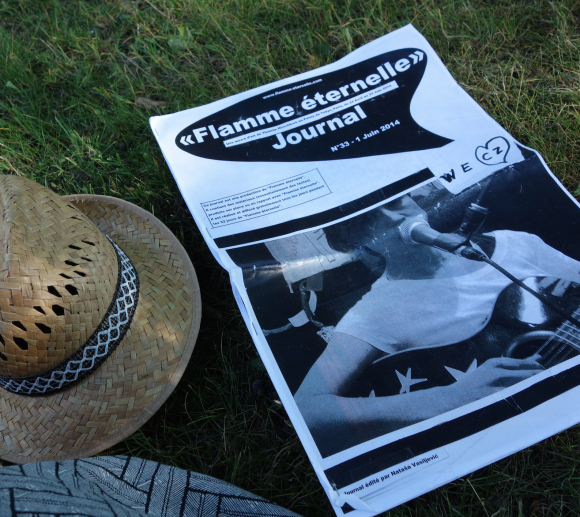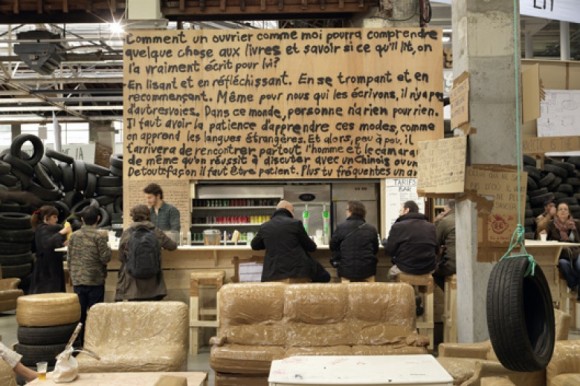Ecrire (“Why Marguerite Duras”)
August 3, 2015 10:12 pm1. Because in every moment of her writing Duras circles the “origin” of the origin.
2. Because this circling is related to an unrelated emptiness.
3. Because circling around the empty origin is touching truth
4. Because to touch a truth means to relate to the namelessness of your origin.
5. Because the circling reference on namelessness connects the poetic form with the philosophical form.
6. Because this form is intimacy with the uncanny.
7. Because Duras knows that there is intimacy only with the untouchability of a universal exterior.
8. Because Duras calls touching the untouchable love.
9. Because real knowledge is knowledge of the unknowable.
10. Because in the thinking and writing of Duras there exist the idea of truth-knowledge.
11. Because truth-knowledge implies touching the limit of knowledge.
12. Because to touch the limit of knowledge is the only challenge, necessity, and legitimization, the unqiue ability of litterature and philosophy.
13. Because what Duras calls writing, is the insistence on the most necessary – of inevitability itself.
14. Because Duras knows that truth-knowledge icnludes the cancellation, the reduction, the restriction, the neutralization and the destruction of fact-knowledge.
15. Because every “journalistic” intervention of Duras is suspending the imperialism, authority, legitimacy, plausibility, and persuasion of fact-dictates
16. Because Duras affirmed the suspension of fact-knowledge as the necessity, evidence and intensity of her writing process.
17. Because Duras’ writing, adventue, venture, recklessness, madness and life commits itself to the paradox, contradiction and conflicted-ness of the formulation of the non-formulatable.
18. Because Duras placed her full ignorance in the service of truth-knowledge.
19. Because the knowledge that sacrifices itself to truth finally begins to approach knowledge as truth-knowledge.
20. Because this knowledge is opening of the closure of truth, opening the subject to the extrem limit of it’s subjectivity.
21. Because for Duras the courage of the opening to closure is fundamendal for (her) life.
22. Because this courage, this recklessness, this blindness and haste and charm is articulated as precise language, as mathematical turbulence.
23. Because in Duras’ writing the will for precision is unresolvable from hyperbolic courage.
24. Because writing is the experience of the conflictuous compossibility of knowledge and truth.
25. Because Duras generates her own concept of absolute knowledge.
Marcus Steinweg “Why Marguerite Duras?” in “Flamme éternelle” Journal n°33 – 1 juin 2014, exposition de Thomas Hirschhorn au Palais de Tokyo, du 24 avril au 23 juin 2014 / lecture au Britzer Garten de Berlin, août 2015 – Texte en allemand.
Retour en écriture, j’espère pour quelques temps !


